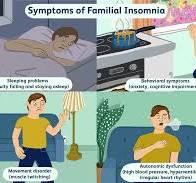Hormonal Insomnia Treatment: Understanding and Managing Sleep Disruptions
Insomnia, characterized by difficulty falling asleep or staying asleep, can be caused by a variety of factors, including hormonal imbalances. Hormones play a crucial role in regulating our sleep-wake cycle, and disruptions in hormone levels can lead to sleep disturbances. Hormonal insomnia is a common issue that affects many individuals, particularly women during various stages of their life, such as menopause or pregnancy.
One of the key hormones involved in sleep regulation is melatonin, often referred to as the “sleep hormone.” Melatonin is produced by the pineal gland in response to darkness and helps signal to our body that it’s time to rest. However, hormonal fluctuations can impact melatonin production, leading to difficulties falling asleep or experiencing poor sleep quality.
For those experiencing hormonal insomnia, there are several treatment options available to help manage and improve sleep patterns:
- Hormone therapy: In cases where hormonal imbalances are identified as the root cause of insomnia, hormone therapy may be recommended. This treatment involves restoring hormone levels through medication or natural remedies to promote better sleep.
- Lifestyle modifications: Adopting healthy lifestyle habits can also help manage hormonal insomnia. This includes maintaining a consistent sleep schedule, creating a relaxing bedtime routine, avoiding stimulants like caffeine before bed, and ensuring your sleeping environment is conducive to restful sleep.
- Dietary changes: Certain foods can influence hormone levels and impact sleep. Incorporating foods rich in melatonin precursors like cherries, nuts, and seeds into your diet may support better sleep quality.
- Stress management techniques: High stress levels can contribute to hormonal imbalances and disrupt sleep patterns. Practicing relaxation techniques such as meditation, deep breathing exercises, or yoga can help reduce stress and promote better sleep.
If you’re struggling with hormonal insomnia, it’s essential to consult with a healthcare provider or specialist to determine the underlying cause of your sleep disturbances and develop an appropriate treatment plan tailored to your needs. By addressing hormonal imbalances and implementing effective strategies for improving sleep hygiene, you can take steps towards achieving restful and rejuvenating sleep.
Effective Tips for Managing Hormonal Insomnia Naturally
- Establish a regular sleep schedule to regulate hormone production.
- Create a relaxing bedtime routine to signal your body that it’s time to sleep.
- Avoid stimulants like caffeine and nicotine close to bedtime.
- Ensure your sleeping environment is dark, quiet, and cool for optimal rest.
- Consider talking to a healthcare provider about hormone therapy options.
- Incorporate stress-reducing activities like meditation or yoga into your daily routine.
Establish a regular sleep schedule to regulate hormone production.
Establishing a regular sleep schedule is a crucial tip for managing hormonal insomnia. Consistency in your bedtime and wake-up time helps regulate hormone production, particularly the release of melatonin, which plays a key role in promoting sleep. By aligning your sleep routine with your body’s natural circadian rhythm, you can optimize hormone balance and improve the quality of your sleep. Creating a consistent sleep schedule not only supports better hormone regulation but also enhances overall sleep efficiency and helps alleviate symptoms of hormonal insomnia.
Create a relaxing bedtime routine to signal your body that it’s time to sleep.
Establishing a soothing bedtime routine can be a powerful tool in managing hormonal insomnia. By engaging in calming activities such as reading a book, taking a warm bath, or practicing gentle stretches before bed, you signal to your body that it’s time to unwind and prepare for sleep. This consistent routine helps regulate your internal clock and promote the production of melatonin, the hormone essential for a restful night’s sleep. Prioritizing relaxation and creating a tranquil environment before bedtime can significantly improve your sleep quality and overall well-being.
Avoid stimulants like caffeine and nicotine close to bedtime.
Avoiding stimulants like caffeine and nicotine close to bedtime is a crucial tip for managing hormonal insomnia. Both caffeine and nicotine are known to disrupt the sleep-wake cycle by stimulating the central nervous system, making it difficult to fall asleep and stay asleep. Caffeine, commonly found in coffee, tea, and energy drinks, can have a lasting impact on the body, with its effects lasting for several hours after consumption. Similarly, nicotine, often present in cigarettes and vaping products, can act as a stimulant that interferes with the body’s natural sleep processes. By eliminating or reducing the intake of these stimulants before bedtime, individuals experiencing hormonal insomnia can create a more conducive environment for restful and uninterrupted sleep.
Ensure your sleeping environment is dark, quiet, and cool for optimal rest.
Creating an ideal sleeping environment is crucial for managing hormonal insomnia and promoting restful sleep. Ensuring that your bedroom is dark, quiet, and cool can help optimize your restorative rest. Darkness signals the body to produce melatonin, the hormone that regulates sleep, while minimizing noise disturbances can prevent interruptions during the night. Additionally, maintaining a cool room temperature can facilitate the body’s natural temperature drop during sleep, enhancing comfort and promoting deeper slumber. By prioritizing a dark, quiet, and cool sleeping environment, you can create the perfect conditions for a peaceful night’s rest and support your efforts in combating hormonal insomnia.
Consider talking to a healthcare provider about hormone therapy options.
When addressing hormonal insomnia, it is advisable to discuss hormone therapy options with a healthcare provider. Hormone therapy can be a valuable treatment approach for individuals experiencing sleep disruptions due to hormonal imbalances. By consulting with a healthcare professional, you can explore the potential benefits of hormone therapy tailored to your specific needs and circumstances. A healthcare provider can assess your hormone levels, discuss the risks and benefits of hormone therapy, and guide you towards an appropriate treatment plan to help improve your sleep quality and overall well-being.
Incorporate stress-reducing activities like meditation or yoga into your daily routine.
Incorporating stress-reducing activities like meditation or yoga into your daily routine can be a beneficial strategy in managing hormonal insomnia. Both meditation and yoga are known for their calming effects on the mind and body, helping to reduce stress levels and promote relaxation. By engaging in these practices regularly, you can create a sense of inner peace and tranquility that may contribute to improved sleep quality. Taking time each day to focus on mindfulness and gentle movements can help balance hormone levels, alleviate tension, and enhance your overall well-being, making it easier to unwind and prepare for a restful night’s sleep.



